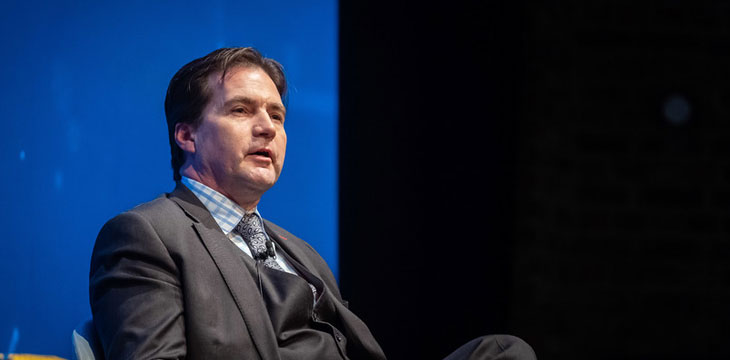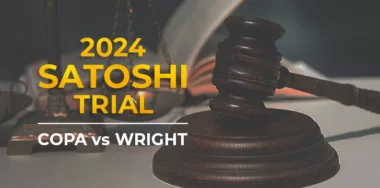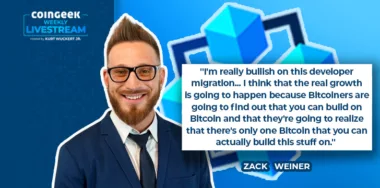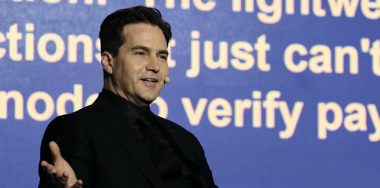The world is still reacting to the news that Dr. Craig Wright has received U.S. copyright registrations for the Bitcoin whitepaper and original Bitcoin code. Twitter users and some crypto news outlets have tried to analyze the story and stake claims to what it means, including CoinDesk. As a result, the U.S. Copyright Office has put out a clarification of recent events, and Dr. Wright has shared some additional statements to his detractors.
As an initial matter, global copyright law does not require an author to obtain copyright registrations in order to own copyright to his works. Dr. Wright—as author—always held copyright ownership of the Bitcoin whitepaper and Bitcoin code he wrote since the moment he created those works and fixed them into a tangible medium of expression. But in certain countries, like the United States, an author receives additional benefits by obtaining copyright registration for his works.
For the registration process, the U.S. Copyright Office press statement explains the typical process used to examine U.S. copyright applications: “The claimant certifies as to the truth of the statements made in the submitted materials. The Copyright Office does not investigate the truth of any statement made.” What needs to be emphasized is that the copyright claimant must certify the truth of statements made in the copyright application.
If a copyright registration is disputed, as many now seem to be excited to dispute Dr. Wright’s copyright ownership claim, the process for that is simple too. The U.S. Copyright Office notes:
“Disputes over the claims in a registration may be heard before federal courts, including disputes over authorship of a work. Someone who intentionally includes false information in an application may be subject to penalties.”
In fact, it is a criminal offense in the United States to “knowingly make a false representation of a material fact in the application for copyright registration… or in any written statement filed in connection with the application.” 17 U.S.C. §506(e). So any other would-be claimants to the Bitcoin white paper and early code should be forewarned before they submit false copyright claims. To get his copyright registrations, and to face those potential penalties, Dr. Wright had to certify to the truth of all statements supporting the copyright registration.
Importantly, the U.S. Copyright Office’s public statement actually confirms the accuracy of Dr. Wright’s recounting of how the Copyright Office did not just “rubber-stamp” his copyright applications:
“In the case of the two registrations issued to Mr. Wright, during the examination process, the Office took note of the well-known pseudonym “Satoshi Nakamoto,” and asked the applicant to confirm that Craig Steven Wright was the author and claimant of the works being registered. Mr. Wright made that confirmation.”
That portion of the U.S. Copyright Office public statement is conveniently left out of other media sites’ reporting.
What is especially notable in Dr. Wright’s situation is the U.S. Copyright examiner responded far more quickly to the copyright applications than is normal—within three business days (which is extremely unusual and extremely fast)—and asked questions about the applications, including recognizing that the Bitcoin white paper was a famous work and noting there were questions about who is Satoshi Nakamoto.
Dr. Wright explained the logic of what he’s done here, and it makes perfect sense: “I have sworn under oath under law to my role as the creator of bitcoin, Satoshi Nakamoto,” he said. “I have given evidence under law and under the consequences where to lie would be perjury.”
This is the forum that Dr. Wright has chosen to prove that he’s Satoshi, and he’s waiting for someone with the guts to face him in court to say otherwise. He said about his decisions, “The correct place for such disputes is in court. I shall continue with the civil claims but, I will act to give evidence and testimony to law enforcement.”
Not only now has he reinforced his claim, but he’s did so using a legal process that requires certifying the truth of his claim s(with threat of potential penalties if they are false). That’s how deep his confidence goes that he can prove he authored the Bitcoin whitepaper and created Bitcoin itself.
Furthermore, contrary to what naysayers are suggesting, the U.S. copyright registrations do carry legal weight in enforcement proceedings.
CoinDesk’s article on the news downplays these facts, and focuses on how the Copyright Office didn’t need any proof that Dr. Wright was Satoshi. But they ignore the fact that the U.S. Copyright Office asked for confirmation that Dr. Wright was the author of the Satoshi Nakaomoto works before issuing registrations (which again had to be statements certified to be true). CoinDesk also ignores that the man behind Bitcoin is raising the stakes once again, and unlike his detractors, he’s willing to certify his claims into legal records, rather than some meaningless tweets. To those social media trolls, Wright said:
“Those seeking to spread lies and false accusations in secret and through social media will find that they have to answer for their actions. Use of this form of irresistible and cowardly attack is outside the boundaries of fair and equitable society and of justice.”
If anyone feels strongly enough, and is sure enough of their convictions, to prove that Dr. Craig Wright did not create Bitcoin, he’s made his terms clear: Face him in court, and he will prove to the law and the world the truth of his claims. If you want to claim your own copyrights for the Bitcoin white paper, Dr. Wright has set the terms for that too, saying, “Those seeking to legitimately profit from their lies and fraud as they denigrate me and make false claims will face criminal justice.”
Dr. Wright didn’t have to go this route, he could have quietly sat on the sidelines and avoided all of this drama. To do so though would be to allow criminality to continue with the creation he made. He can’t stand for that. He said, “In due time, I am going to clean out this industry that I created of the fraud and scams.”
Now that Dr. Wright has set the terms under which he will prove his identity as Satoshi, with civil cases for his trolls, sworn testimony to the government to back up his claim, and legal battles for anyone brave enough to test his evidence in court, the man’s resolve is stronger than ever. “I am Satoshi Nakamoto,” he declares. “I created Bitcoin. If you try and falsely claim that you did, you are committing a criminal offence and we will ensure you are charged with a crime.”
In the meantime, if you want to hear more about the early days of Bitcoin, and possibly hear more exciting revelations, attend the Fireside chat, attended by Dr. Craig Wright and hosted by Bitcoin Association Founding President Jimmy Nguyen, on May 30 at the CoinGeek Toronto scaling conference. The two are sure to talk about this topic, and many others, and it’s an opportunity you can’t afford to miss.
New to blockchain? Check out CoinGeek’s Blockchain for Beginners section, the ultimate resource guide to learn more about blockchain technology.









